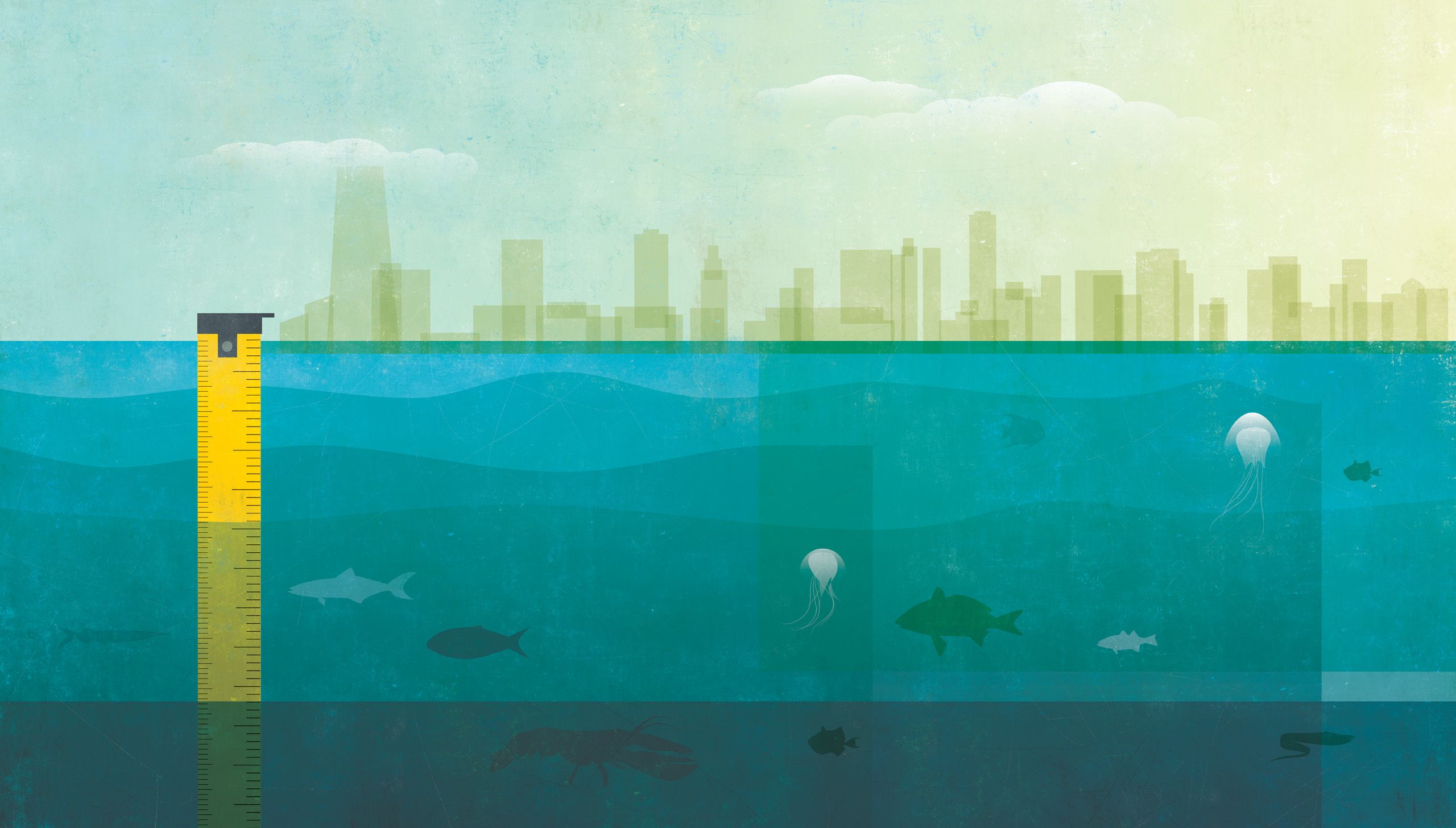Introduction
The impacts of climate change are becoming more evident with each passing year. From extreme weather events to rising sea levels, the effects are far-reaching and extend to various aspects of our lives, including insurance policies.
Understanding the link between climate change and insurance policies
Climate change has led to an increase in the frequency and severity of natural disasters such as hurricanes, floods, and wildfires. As a result, insurance companies are facing higher claims and greater financial risks. Insurers are now reevaluating their policies to account for the potential risks associated with climate change.
The growing concerns about rising tides and their impact on insurance
Rising sea levels pose a significant threat to coastal communities and waterfront properties. As sea levels continue to rise, insurance companies are grappling with the challenges of providing coverage for these areas. The increased risk of flooding and property damage has led to higher insurance premiums and stricter regulations for properties located in flood-prone zones.
Insurance companies are also looking into innovative solutions such as parametric insurance, which provides coverage for specific weather events instead of traditional property damage. This shift allows insurers to better manage their risks and protect policyholders from climate-related perils.
In conclusion, the rising tide of climate change is having a profound impact on insurance policies. As the frequency and intensity of climate-related events continue to rise, insurance companies must adapt and reassess their policies to ensure the long-term sustainability of their business and provide adequate protection for policyholders.
The Rising Tide of Climate Change and its Impact on Insurance Policies
Changes in flood insurance policies
With the increasing frequency and severity of floods due to climate change, insurance companies are making significant changes to their flood insurance policies. Many policies now have stricter eligibility criteria and higher premiums in high-risk flood zones. Some companies also offer specialized coverage for properties that are at a higher risk of flooding.
Increasing premiums and deductibles
Insurance companies are also facing the challenge of rising costs due to climate-related damages. As a result, premiums and deductibles for various insurance policies, including homeowners and property insurance, are on the rise. With the increased risks associated with climate change, insurance providers are adjusting their pricing models to account for these potential losses.
These changes are driven by the need for insurance companies to mitigate their own financial risks in the face of climate change. As extreme weather events become more frequent and intense, the costs of insurance claims are also rising. Therefore, it is crucial for individuals and businesses to reassess their insurance coverage and be prepared for potential changes in terms of costs and coverage as the impacts of climate change continue to unfold.
Climate Change Risks and Insurance Policies
The impact of climate change is being felt across various sectors, including insurance. Insurance providers are facing the challenge of adapting their products to address the risks associated with climate change.
Adapting insurance products to address climate-related risks
Insurance companies are recognizing the need to offer coverage for climate-related events, such as floods, hurricanes, and wildfires. They are developing new policies that consider the increased frequency and severity of these events due to climate change. These products provide financial protection and peace of mind to individuals and businesses affected by such disasters.
The role of data and analytics in assessing risks
To assess climate-related risks accurately, insurance providers are relying on data and advanced analytics. They analyze historical weather patterns, climate models, and other data sources to understand the potential impact of climate change on specific areas. This information helps insurers determine the appropriate coverage and pricing for policyholders.
By leveraging technology and data-driven insights, insurance companies can better manage their risks and ensure that they can provide adequate coverage to their policyholders, even in the face of increasing climate-related events.
Overall, as the effects of climate change continue to escalate, insurance providers play a crucial role in helping individuals and businesses mitigate the financial risks associated with these changes. Through adapting their products and utilizing data-driven approaches, they can navigate the rising tide of climate change and provide valuable protection to their customers.

Impact on Property Insurance
Increased vulnerability of coastal properties
Coastal regions are experiencing the devastating effects of climate change, including rising sea levels and increased frequency of storms and hurricanes. As a result, insurance companies are facing higher risks when it comes to insuring properties in these areas. The increased vulnerability of coastal properties has led to higher premiums, stricter insurance requirements, and even limited coverage options in some cases.
Changes in property valuation and coverage
Climate change has also had an impact on property valuation and coverage. With the increased risk of floods, wildfires, and other natural disasters, insurers are reassessing the value of properties and adjusting coverage accordingly. Homeowners may find that their insurance policies no longer provide adequate protection or that their premiums have significantly increased. Additionally, certain areas may become uninsurable altogether as insurers deem them too high-risk.
It is important for property owners to stay informed about the changing landscape of property insurance and take steps to mitigate risks. This may include implementing measures to protect against natural disasters, such as fortifying homes against hurricanes or installing flood prevention systems. Additionally, individuals should regularly review their insurance policies and consult with their insurance provider to ensure they have appropriate coverage for their specific circumstances.
Climate change is undoubtedly reshaping the insurance industry, particularly when it comes to property insurance. As the impacts of climate change continue to intensify, it is crucial for both insurers and property owners to adapt and take proactive measures to mitigate risks and ensure adequate coverage.
Impact on Crops and Agriculture Insurance
Risks to crop yield and revenue
The rising tide of climate change poses significant risks to crop production and agricultural revenue. Extreme weather events such as droughts, floods, and heatwaves can wreak havoc on crops, resulting in lower yields and financial losses for farmers. These unpredictable weather patterns make it increasingly difficult for insurers to accurately assess risks and provide suitable coverage for agricultural businesses.
Insurance solutions for agricultural losses
To address the impact of climate change on crops and agriculture, insurance companies are developing innovative solutions. These include parametric insurance, which pays out based on predefined weather conditions or crop performance indicators. By leveraging technology and data analytics, insurers can better predict and assess climate-related risks, enabling them to offer comprehensive coverage and financial protection to farmers.
Additionally, insurers are promoting risk management practices such as crop diversification, precision agriculture technologies, and sustainable farming methods. These measures help mitigate the impact of climate change on agricultural operations and reduce the likelihood of financial losses.
It is crucial for farmers and agricultural businesses to understand the evolving risks posed by climate change and work closely with insurance providers to secure appropriate coverage. By adopting sustainable farming practices, leveraging technology, and having proactive risk management strategies in place, farmers can mitigate the impact of climate change on their crops and safeguard their livelihoods.
Impact on Homeowners Insurance
Rising threat of extreme weather events
With the rising tide of climate change, extreme weather events such as hurricanes, floods, and wildfires have become more frequent and severe. These events are posing a significant challenge to homeowners insurance companies. The increased risk of property damage and claims payout is impacting the financial stability of insurers.
Policy considerations for homeowners
As a homeowner, it is crucial to be aware of the impact of climate change on your insurance policy. Here are some considerations:
1.Review your coverage: Due to the increased risk of weather-related damage, you may need to reassess your coverage. Ensure that you have adequate protection against natural disasters and take into account any changes in your property’s risk profile.
2.Understand exclusions: Insurance policies may have exclusions for certain types of weather-related damage. Review the fine print and clarify any uncertainties with your insurer to ensure you have adequate coverage.
3.Take preventive measures: Insurance companies are encouraging homeowners to take steps to mitigate the risk of climate-related damage. This includes implementing measures such as installing storm shutters, reinforcing roofs, or improving drainage systems.
4.Consider additional coverage: Depending on your location and risk profile, you may need to consider additional coverage options, such as flood insurance or coverage for wildfire-prone areas.
5.Stay informed: Stay updated on climate-related risks in your area and any changes in insurance policies. Regularly review your coverage to ensure it aligns with your needs and takes into account the evolving challenges posed by climate change.
By understanding the implications of climate change on homeowners insurance and taking appropriate measures, homeowners can better protect their properties and ensure they have adequate coverage.
Mitigation and Adaptation Strategies
Encouraging sustainable practices and green insurance options
As the impacts of climate change continue to worsen, insurance companies are adapting to the rising tide by encouraging sustainable practices. They are offering green insurance options that provide coverage for eco-friendly businesses and incentivize sustainable behavior. This includes coverage for renewable energy projects, carbon offset programs, and sustainable agriculture practices. By supporting these initiatives, insurance companies are not only mitigating the risks associated with climate change but also promoting a more sustainable future.
Investing in resilience and risk reduction
Insurance companies are also investing in resilience and risk reduction measures to minimize the impact of climate change on their policies. This includes supporting infrastructure improvements in vulnerable areas, such as flood defenses and wildfire prevention measures. By investing in these initiatives, insurance companies are not only protecting their own interests but also helping communities become more resilient to the changing climate. This proactive approach ensures that insurance policies remain viable and affordable in the face of increasing climate-related risks.
Throughout the industry, insurers are recognizing the need to adapt to the rising tide of climate change. By encouraging sustainable practices, offering green insurance options, and investing in resilience measures, insurance companies are playing a crucial role in mitigating the impacts of climate change and ensuring the long-term viability of insurance policies.
Conclusion
The Rising Tide of Climate Change and its Impact on Insurance Policies
As the effects of climate change become more pronounced, the insurance industry is facing new and complex challenges. The urgency to take proactive measures cannot be overstated.
The urgent need for proactive measures
Insurance companies must adapt to the changing climate landscape. This involves revisiting policies, reassessing risks, and developing innovative solutions. Without proactive measures, insurers may find themselves unable to accurately assess and cover climate-related damages, leading to financial instability.
Collaborative efforts to tackle climate-related insurance challenges
Addressing the impact of climate change on insurance goes beyond the scope of any single company. Collaboration between insurers, governments, and other stakeholders is essential. By pooling resources and sharing knowledge, the industry can develop strategies to navigate the evolving risks and protect policyholders.
In conclusion, the rising tide of climate change is putting immense pressure on insurance policies. Proactive measures and collaboration are crucial to ensure the industry can effectively adapt and provide adequate coverage in a changing world. By taking action now, insurers can better protect themselves and their policyholders from the unpredictable impacts of climate change.














